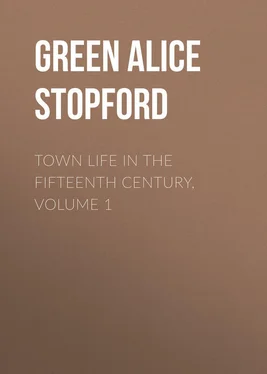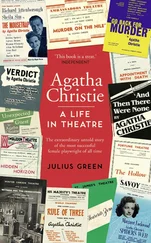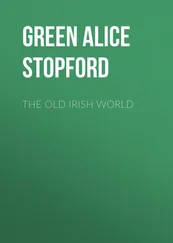Alice Green - Town Life in the Fifteenth Century, Volume 1
Здесь есть возможность читать онлайн «Alice Green - Town Life in the Fifteenth Century, Volume 1» — ознакомительный отрывок электронной книги совершенно бесплатно, а после прочтения отрывка купить полную версию. В некоторых случаях можно слушать аудио, скачать через торрент в формате fb2 и присутствует краткое содержание. Жанр: literature_19, foreign_antique, foreign_prose, Историческая проза, на английском языке. Описание произведения, (предисловие) а так же отзывы посетителей доступны на портале библиотеки ЛибКат.
- Название:Town Life in the Fifteenth Century, Volume 1
- Автор:
- Жанр:
- Год:неизвестен
- ISBN:нет данных
- Рейтинг книги:3 / 5. Голосов: 1
-
Избранное:Добавить в избранное
- Отзывы:
-
Ваша оценка:
- 60
- 1
- 2
- 3
- 4
- 5
Town Life in the Fifteenth Century, Volume 1: краткое содержание, описание и аннотация
Предлагаем к чтению аннотацию, описание, краткое содержание или предисловие (зависит от того, что написал сам автор книги «Town Life in the Fifteenth Century, Volume 1»). Если вы не нашли необходимую информацию о книге — напишите в комментариях, мы постараемся отыскать её.
Town Life in the Fifteenth Century, Volume 1 — читать онлайн ознакомительный отрывок
Ниже представлен текст книги, разбитый по страницам. Система сохранения места последней прочитанной страницы, позволяет с удобством читать онлайн бесплатно книгу «Town Life in the Fifteenth Century, Volume 1», без необходимости каждый раз заново искать на чём Вы остановились. Поставьте закладку, и сможете в любой момент перейти на страницу, на которой закончили чтение.
Интервал:
Закладка:
The towns as we find them in the fifteenth century were the outcome of centuries of preparation. It was by a very slow and gradual process that England was transformed from a purely agricultural country, with its scattered villages of dependent tillers of the soil, into the England we know to-day – a land of industrial town communities, where agricultural interests are almost forgotten in the summing up of the national wealth. Our modern towns, indeed, can almost all trace back their history into the obscurity of a very distant past; but their record as we find it in Domesday, or under the Norman kings, is simply that of little country hamlets, where a few agricultural labourers gathered in their poor hovels, tilling by turns their lord’s land and their own small holdings; or of somewhat bigger villages which lay at the branching of a great road, at a river ford, or at a convenient meeting-place for fair or market, and thus grew into some little consequence as the centres of a small local trade; while along the coast a few seaports were just beginning to draw merchants with their wares to a land that had long been almost forgotten by the traders of the Continent. It was not till the twelfth century 8 8 The first mention of burgesses in the Empire is in 1066 at Huy, in the bishopric of Liege. Pirenne, Dinant, 18.
that our boroughs began to have an independent municipal history – from the time, that is, when the growth of the wool trade under Henry the First gave them a new commercial life; and the organization of local government under Henry the Second opened for them the way into a new world of political experiment and speculation. 9 9 Dr. Gross gives a list of 150 towns which had gained the right of having a merchant gild – most of them in the twelfth and thirteenth centuries.
From this time all went well with the municipalities for three hundred years. In the course of the thirteenth century the great majority of towns obtained rights of self-government, until finally these grants came to an end simply because there were no unenfranchised towns left. 10 10 Edward the First in the thirty years of his rule created fifty-four new boroughs. In the first eighty years of the fifteenth century the kings only issued nine charters of this kind.
Not indeed that the flow of royal charters ceased, for burghers who had got the first instalments of independence were constant in pressing for all such further privileges as could magnify their authority or protect their dignity; and successive generations of patriotic citizens gathered into their town chests under the safe keeping of half a dozen locks piles of precious parchments, each of which conferred some new boon or widened the borders of liberty. Determined as it was by local circumstances the struggle for independence was carried on after an irregular fashion, first in one town, then in another; here the burghers pressed forward riotously, and there loitered indifferently or stopped discouraged on their way. Some towns were allowed to elect their mayor before 1200, 11 11 London was not apparently before other cities in the winning of liberties. (Round, Geoffrey de Mandeville, 372.) There were reasons enough for especial caution of Henry the Second in the matter of London.
others did not win the right till three or four centuries later; Bristol was made a shire in 1375, more than a hundred years before Gloucester; and in the fifteenth century there were still boroughs which had to gain their first charters, or else to exchange narrow and insufficient rights for full emancipation. But the forward movement never ceased; every victory counted for liberty, and every success justified faith and inspired new zeal. The burghers went on filling their purses on the one hand, and drawing up constitutions for their towns on the other, till in the fifteenth century they were in fact the guardians of English wealth and the arbiters of English politics.
At first indeed municipal life, even at its best, was on a very humble scale. The biggest boroughs could probably in 1300 only make a show of four or five thousand inhabitants, and of enfranchised burgesses a yet smaller number; 12 12 Gross, Gild Merchant, i. 73, note; Archæologia, vii. p. 337-347; Stubbs, ii. 486.
while the mud or wood-framed huts with gabled roofs of thatch and reeds that lined their narrow lanes sheltered a people who, accepting a common poverty, traded in little more than the mere necessaries of life. 13 13 Burgage rents in the earliest times were accounted for by the officers not in a lump sum but “as the pennies come in.” Rep. on Markets, 13.
It was not till the middle of the fourteenth century that the towns as they entered on a larger industrial activity began to free themselves from the indescribable squalor and misery of the early Middle Ages; but from this time forward we begin to detect signs of stirring prosperity, at first under the guise of a frugal well-being, and later carrying its luxury with happy ostentation. In the course of the next hundred years we see trading ports such as Lynn, Sandwich, Southampton, or Bristol, and centres of inland traffic such as Nottingham, Leicester, or Reading, and manufacturing towns like Norwich, Worcester, York, heaping up wealth, doubling and trebling their yearly expenditure, raising the salaries of their officers, building new quarters, adorning their public offices and churches, lavishing money on the buying of new privileges for their citizens, or on the extension of their trade. And while the bigger boroughs were thus enjoying their harvest of blessing and fat things, the small seaports and market towns also gathered in their share of the general good fortune by which all England was enriched.
Take, for example, the town of Colchester, where from the time of the Conquest a population of about 2,200 had found means to live, but in those two hundred and fifty years had never added to their numbers. Of their manner of life we can tell something from the records of a toll levied on their goods about 1300. One of the wealthiest tradesmen in the town was a butcher, whose valuation came to £7 15 s. 2 d. ; while the stock-in-hand of his brethren in the trade consisted mostly of brawn, lard, and a few salting tubs, though one had two carcases of oxen at two shillings each, and another had meat worth thirty shillings in his shop. If we add to the butchers thirteen well-to-do tanners, and fourteen mercers who sold gloves, belts, leather, silk purses, and needle-cases, besides cloth and flannel, and one even girdles (which, with their silver ornaments, were costly articles), we have exhausted the list of the Colchester plutocrats. In the course of the fourteenth century, however, the makers of cloth came to settle beside the tanners and butchers. Card-makers, combers, clothiers, weavers, fullers, and dyers gathered to the town, and spread their trade out into the neighbouring villages. Wool-mongers pushed their business, till in 1373 the bailiffs made the under-croft beneath the old Moot Hall into a Wool Hall for the convenience of dealers, and added a fine porch with a vault overhanging the entrance to the Moot Hall, and some shops with solars over them. Before the century had closed the population had more than doubled. The poor houses that once lined the streets were swept away, and wealthy men built shops in the new style with chambers over them fronting the street, and let them to shopkeeping tenants. 14 14 Cutt’s Colchester, 111-117, 126-7.
In the little trading town of Bridport we have the same story. In 1319 Bridport, with its one hundred and eighty burgesses, could not at a “view of arms,” or muster of fighting men, produce a single burgher who bore bow and arrows, and sent out its motley regiment equipped with the universal knife or dagger, or, as it might chance, with staves, hatchets, pole-axes, forks, or spears, while an aristocrat or two actually bore a sword. Only sixty-seven burgesses out of the one hundred and eighty paid taxes, and the general poverty seems to have been extreme. The richest man had one cow, two hogs, two brass platters, a few hides, and a little furniture – the whole worth £4 8 s. ; and one of the most respectable innkeepers of the place owned two hogs, two beds, two table-cloths, two hand napkins, a horse, a brass pot, a platter, a few wooden vessels, and some malt. 15 15 Two other innkeepers had much the same stock-in-trade.
In 1323 things were a trifle better, for eighty persons were then taxed, the property of some of them being valued only at six shillings, and this under a system in which the whole of each man’s possessions was exactly reckoned up – his cards, yarn, shoes, the girths he was making or trying to sell, even his store of oatmeal. A century later, however, we find a new Bridport. Traders from Bristol had settled in its streets, and men of Holland and foreign merchants and craftsmen; and the townsfolk had grown prosperous and began to bind themselves together in fraternities – the brotherhood of S. Nicholas, the brotherhood of S. Mary and S. James, the brotherhood of the Two Torches, a brotherhood of the Light of the Holy Cross in S. Andrew’s, and another in S. Mary’s, and the brotherhood of the Torches in the Church of the Blessed Mary – apparently the offspring of the first half of the fifteenth century. The Toll Hall was repaired, the houses in the town set in order, and a new causeway made. The Guild Hall got its clock; the church was rebuilt and fitted up with organs, and sittings in it were let out to the wealthy burghers. When, finally, a “view of arms” was again held in the town in 1458, there was not a single name left of those who had appeared in the list of 1319. But these new traders came bravely set out with bows and arrows, as well as with daggers, bills, pole-axes, or spears, or marching proudly with their mails, jacks, salets, and “white harness with a basenet.” The Bridport standard had changed, and one man who came carrying quite an armoury – a gun, besides a bow, twelve arrows, a sword, and a buckler – was ordered to have twelve more arrows at the next muster. 16 16 Hist. MSS. Com. vi. part i. 491-2, 478, 489. In Reading at the muster roll of 1311 there appeared eight men armed with sword, bow, arrows, and knife; thirty-three with bows, arrows, and knives; and over two hundred and thirty-five (besides some names lost at the foot of the roll) with hatchets and knives. In 1371 the town was able to raise a body of archers for service abroad; and under Edward the Sixth it sent fifty soldiers armed with bills, swords, daggers, bows, and arrows, and paid each soldier forty pence “for the King’s affairs into Boulogne.” Hist. MSS. Com. xi. 7, 171, 182.
Интервал:
Закладка:
Похожие книги на «Town Life in the Fifteenth Century, Volume 1»
Представляем Вашему вниманию похожие книги на «Town Life in the Fifteenth Century, Volume 1» списком для выбора. Мы отобрали схожую по названию и смыслу литературу в надежде предоставить читателям больше вариантов отыскать новые, интересные, ещё непрочитанные произведения.
Обсуждение, отзывы о книге «Town Life in the Fifteenth Century, Volume 1» и просто собственные мнения читателей. Оставьте ваши комментарии, напишите, что Вы думаете о произведении, его смысле или главных героях. Укажите что конкретно понравилось, а что нет, и почему Вы так считаете.












